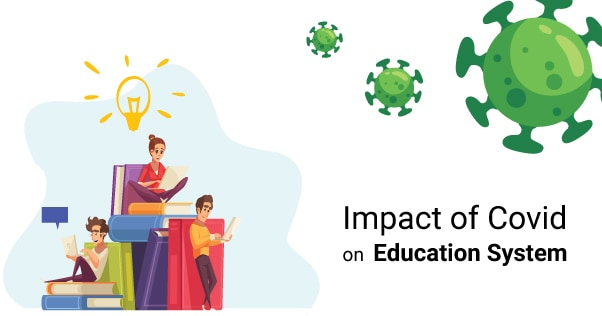The COVID-19 pandemic has had a significant impact on the education system in India, affecting students, teachers, and the overall education infrastructure. The pandemic has led to the closure of schools and colleges across the country, forcing a shift to online learning, which has presented a host of challenges for students and teachers alike.
One of the most significant impacts of the pandemic on the education system in India has been the digital divide. While some students have access to technology and resources required for online learning, many others do not. This has created an inequitable situation where some students can continue their education while others cannot. The government has attempted to address this issue by launching initiatives such as the DIKSHA platform, which provides digital resources and online classes to students. However, these initiatives have not been enough to bridge the digital divide entirely.
The shift to online learning has also impacted students’ mental health. The sudden and prolonged closure of schools and colleges has left students feeling isolated and anxious. Many students have reported feeling stressed, anxious, and overwhelmed by the sudden shift to online learning. This has led to concerns about the long-term impact of the pandemic on students’ mental health and well-being.
Furthermore, the pandemic has created significant challenges for teachers and students in accessing technology and resources required for online learning. While some teachers and students have been able to adapt to the new online learning environment, many have struggled to access the technology and resources required for online classes. This has led to a significant gap in the quality of education being delivered to students.
In addition to the challenges of online learning, the pandemic has also created significant challenges for the education infrastructure in India. With schools and colleges closed, many educational institutions have faced financial difficulties, with reduced revenue from tuition fees and other sources. This has created significant challenges for schools and colleges, particularly those in rural areas, which may lack the financial resources to provide online learning or other resources to students.
Overall, the impact of the pandemic on the education system in India has been significant. The shift to online learning has created significant challenges for students, teachers, and the education infrastructure. While the government has attempted to address some of these challenges through initiatives such as the DIKSHA platform, there is still a long way to go in addressing the digital divide and ensuring that all students have access to quality education.
In conclusion, the COVID-19 pandemic has had a profound impact on the education system in India. While the shift to online learning has allowed for some continuity of education, it has also created significant challenges for students, teachers, and the education infrastructure. Addressing these challenges will require significant investment in technology and resources, as well as a concerted effort to bridge the digital divide and ensure that all students have access to quality education, regardless of their background or socio-economic status.










